Benefits of Energy Efficient Windows: Pros and Cons
What are the benefits of energy efficient windows? In this post, we’ll cover not only the pros but the cons of installing new windows.
This post may contain affiliate links, I earn from qualifying purchases at no extra cost to you. Click here for my disclosure policy
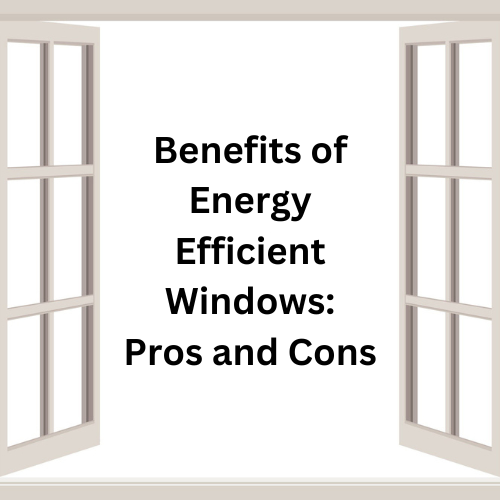
When temperatures rise or plummet outside, you want your home’s interior to stay comfortable and cozy. But have you looked at your windows lately? Old drafty windows could be the biggest energy wasters in your house, making your heating and cooling systems work overtime. Installing new energy-efficient windows can make a major difference in your monthly utility bills and your home’s overall energy efficiency.
However, switching out your windows isn’t a decision to take lightly — there are both pros and cons to carefully consider. There might be many questions to answer: how much do energy efficient windows save for you, what budget will you need to prepare, and how long will the replacement take? In this article, we will help you weigh the benefits and potential drawbacks of installing energy-efficient windows in your home.
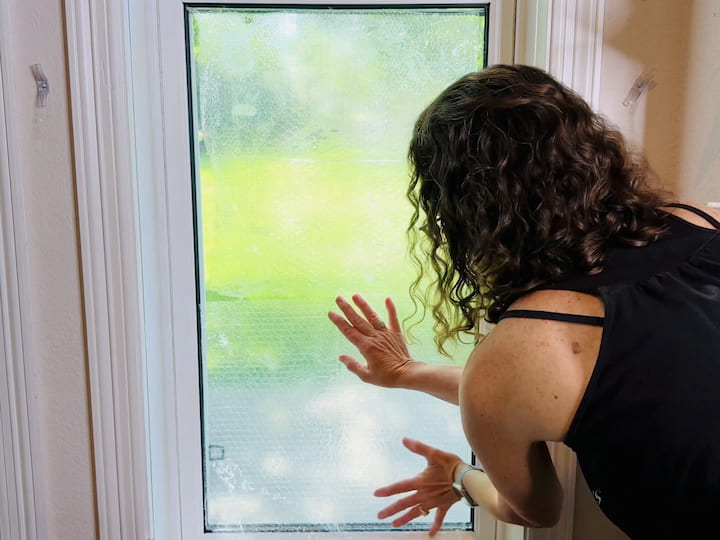
The Pros: Why Energy Efficient Windows Are a Smart Investment
Spoiler alert: the advantages of this upgrade are more significant for most homeowners. Let’s analyze them.
Lasting Energy and Cost Savings
Older windows allow precious heated or cooled air to escape through cracks and poor insulation. Today’s energy-efficient options have double or triple panes with insulating argon gas fills. They feature warm edge spacers, low-E coatings, and solid weatherstripping to form a tight seal. This traps indoor air inside while blocking outdoor temperature transfer. According to Energy Star, certified windows can reduce energy costs by $493-$568 per year when replacing single-pane windows.
Increased Home Comfort
Have you ever felt drafts coming through your windows when walking by? Or noticed some rooms get too hot or cold compared to others? Energy-efficient windows keep indoor temperatures consistent by eliminating drafts, hot/cold spots, and condensation buildup. You and your family can enjoy a comfortable home year-round.
Reduced Fading and UV Exposure
The sun’s UV rays cause carpets, furniture, drapes, and hardwood floors to fade over time. Energy-efficient windows contain low-E coatings to filter out these damaging UV rays while still allowing ample natural light to brighten your home.
Lower HVAC Costs and Longer Lifespan
When your furnace and air conditioner don’t have to work as hard to maintain the desired temperature, their components and parts don’t undergo as much wear and tear. This allows them to run more efficiently and last longer before needing costly repairs or replacements.
Potential Tax Credits
Many energy-efficient windows qualify for federal tax credits that can offset a portion of the installation costs. Be sure to research the criteria your new windows need to meet to make you eligible.
Higher Resale Value
Today’s homebuyers are highly interested in purchasing homes with energy-saving features. Energy-efficient windows add value and are considered a major selling point. Many buyers are willing to pay a premium for a home with upgraded windows already installed.
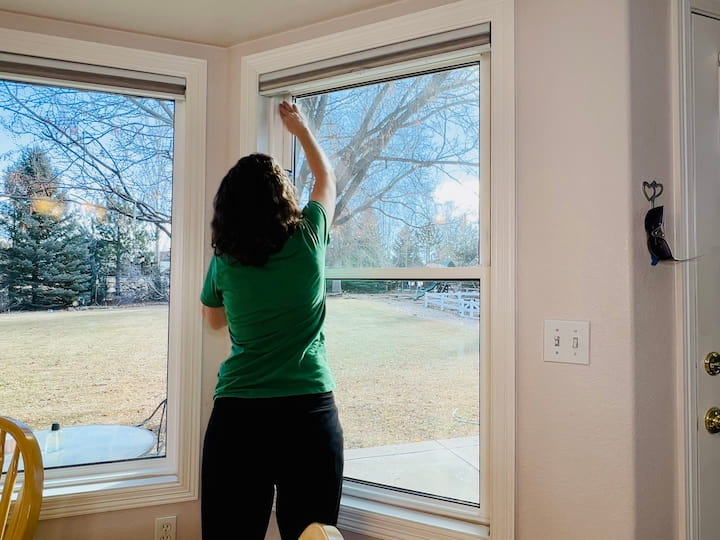
The Cons: Potential Drawbacks to Installing New Windows
Even with all those great opportunities, there are some aspects that can make many people put this decision off. Here are the most critical considerations:
High Upfront Costs
There’s no way around it — replacing all the windows in your home is an expensive renovation project. Energy-efficient windows cost anywhere from $320 to $2,000 per window installed depending on the size, frame materials, and additional features. Thus, the total project can easily reach $10,000-$20,000 for most homes.
Not a Quick Renovation
If you have a large number of windows, the installation process can be quite disruptive and lengthy. Each opening has to be carefully measured, prepped, and reframed to fit the new units properly and ensure a tight seal. You can expect 1-2 weeks of labor or more, depending on the size of your home.
Potential Logistical Hassles
During the installation, you may need to move furniture, take down drapes/blinds, and temporarily relocate your family or work-from-home set-up for some periods of time. There will also be construction noise, dust, and mess to deal with.
Lower Natural Ventilation
Many new energy-efficient windows are designed to open less or not at all to maximize indoor air sealing abilities. This reduces natural airflow, which some homeowners may dislike.
Possible Framing Modifications Needed
If your window openings are non-standard or your home has sustained structural shifting over the years, additional framing work may be required to correctly install the new units at an added expense.
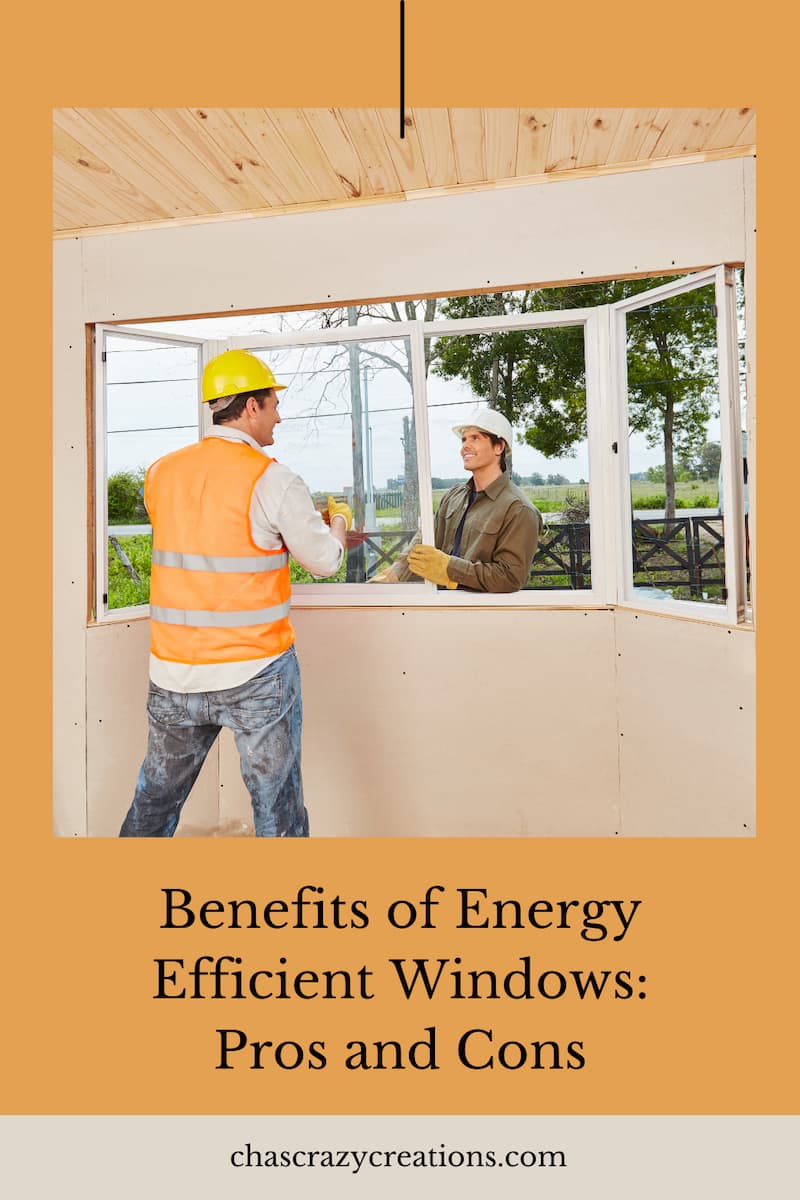
Benefits of Energy Efficient Windows Q & A
The purpose of energy efficient windows is to reduce energy consumption by minimizing heat transfer and air leakage, leading to lower heating and cooling costs for homeowners and businesses.
Energy efficient windows can make a significant difference in reducing energy consumption. They can lower heating and cooling costs by 10-20% compared to traditional windows, leading to long-term savings and a smaller environmental footprint.
Upgrading to energy efficient windows can improve indoor comfort, reduce energy bills, and contribute to environmental sustainability by lowering carbon emissions. It’s a smart investment that pays off in the long run.
More thoughts on the benefits of energy efficient windows
Energy-efficient windows have become a cornerstone in home improvement projects, especially for those seeking to enhance their dwelling’s comfort and sustainability. One of the primary benefits of replacing older windows with energy-efficient options, such as vinyl or fiberglass frames, lies in their ability to significantly reduce heat loss and cold air infiltration. This is particularly true for double-pane or triple-pane windows, which employ advanced insulating techniques to create a barrier against temperature fluctuations. By upgrading to these modern windows, homeowners can experience a noticeable improvement in indoor comfort while simultaneously lowering their energy bills.
Moreover, energy-efficient windows often feature low-emissivity coatings, which serve to minimize the transfer of heat through the glass. This helps maintain a stable climate within the home by preventing excessive heat gain in the summer and heat loss in the winter. Additionally, these coatings can block harmful UV rays, protecting interior furnishings from sun damage and reducing the risk of mold growth caused by moisture buildup.
When considering the purchase of energy-efficient windows, it’s essential to look for products with high NFRC ratings and Energy Star labels. These certifications indicate compliance with industry standards for energy performance, ensuring that homeowners receive the most energy-efficient windows available. Furthermore, many regions offer rebates, tax incentives, or other financial incentives to encourage the adoption of energy-efficient technologies, further enhancing the return on investment (ROI) for window replacement projects.
In terms of window construction, the choice between double-pane and triple-pane windows depends on various factors, including climate and budget. While triple-pane windows offer superior insulation and may be more suitable for extreme climates, double-pane windows can still provide significant energy savings in milder regions. Homeowners should also consider factors such as the U-factor and solar heat gain coefficient (SHGC), which measure the window’s insulation properties and its ability to harness solar heat, respectively.
Vinyl and fiberglass frames are popular choices for energy-efficient windows due to their durability, low maintenance requirements, and thermal performance. Unlike aluminum frames, which are prone to conducting heat and cold, vinyl and fiberglass frames offer better insulation, reducing energy transfer and improving overall efficiency.
For potential buyers, investing in energy-efficient windows not only enhances the comfort and value of their homes but also demonstrates a commitment to sustainability and responsible energy use. Whether motivated by the desire to reduce energy consumption, lower utility bills, or minimize environmental impact, replacing old windows with energy-efficient alternatives is a decision that pays dividends both now and in the future.

Benefits of Energy Efficient Windows Final Thoughts
As you can see, there are numerous factors to weigh when deciding if this energy-efficient upgrade is the right choice for your home and budget. If you plan to stay in your home long-term and want to maximize energy savings, comfort, and resale value, the upfront investment could pay off significantly over time. However, if you have budgetary constraints or aren’t planning to live in the home much longer, you may want to prioritize other renovations first. Consulting installation professionals can help you fully examine the pros and cons for your specific situation.





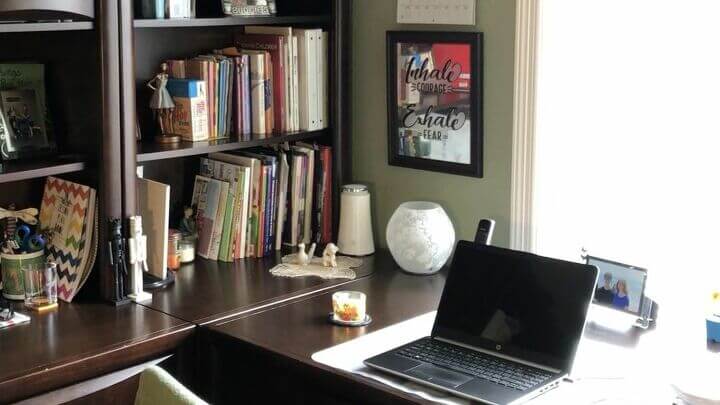

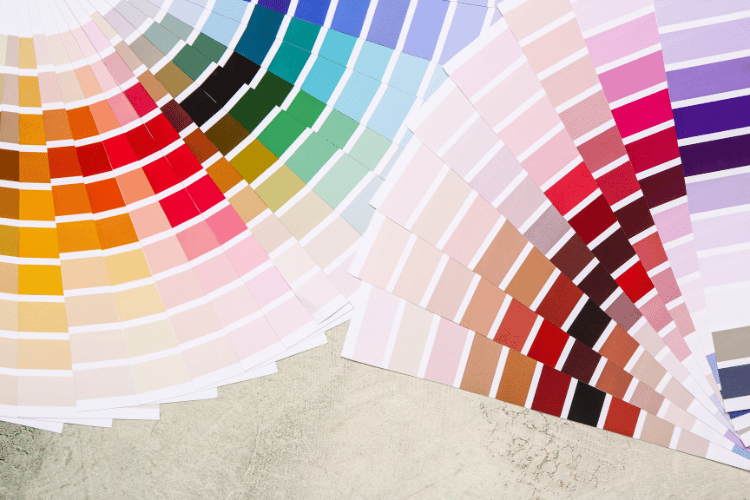

Superb analysis! Another aspect to consider is how these windows can significantly improve your indoor air quality. Energy-efficient windows often have better seals and insulation, reducing the infiltration of outdoor pollutants, allergens, and humidity. This can lead to a healthier living environment and reduce the strain on your HVAC system. Additionally, the enhanced insulation helps maintain consistent indoor temperatures, contributing to overall comfort and potentially reducing the occurrence of mold and mildew due to better humidity control. These benefits make energy-efficient windows a holistic investment for both comfort and health.